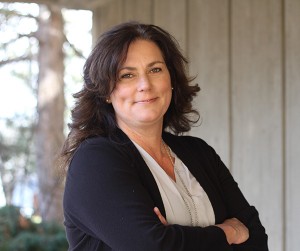As an avid camper, Stephanie Smith, WSU Extension food safety specialist, knows a thing or two about keeping food safe at a picnic.
“Any food is safe, as long as it’s handled properly,” says Smith, who educates Washington residents on safely preparing foods. “The most important thing: Keep it hot or keep it cold.”
When dining outdoors, she follows the two-hour rule: Perishables such as salads containing dairy or eggs, or meat can be in the danger zone between 40 and 140 degrees Fahrenheit for no more than two hours. Longer than that, and bacteria can grow, risking foodborne illness.
“If it’s been out for two hours, it needs to be tossed,” said Smith.

Cook food fully
“I go camping a lot—that’s the ultimate picnic,” said Smith, who makes sure her picnic foods are safe by packing smart, keeping raw foods separate from ready-to-eat items, and then cooking fully.
“When I’m camping, I like to keep it as simple as possible,” Smith said. “If I’m going on a day trip and eating outside, I prepare everything at home, package it, and store it in a cooler with an ice pack. That way, there is no prep work going on outside, where it’s hard to keep clean.”
For one of her favorite camping foods, fajitas, “I cut the bell pepper and onion, then slice the meat, and put them in separate bags,” Smith said. “The meat goes in a different cooler than the veggies. I’ll bring two coolers, one for raw ingredients, one for food that’s ready to eat.
Avoid partial cooking
It’s best to avoid partially cooking or precooking foods ahead of time.
“If you partially cook a burger or a piece of chicken, you haven’t killed every germ that might be in that meat,” Smith said. “Even if it’s in a cooler, even if it’s cold, germs are still there, and you can cross-contaminate other foods. If you’re going to bring something like that, fully cook it ahead of time, or cook it at your destination.”
“If I’m doing burgers, I buy frozen, pre-made patties and put them in their own cooler with plenty of ice,” Smith said.
She advises checking ice bags to make sure there aren’t any air pockets that will prevent food from getting cold.
“In your cooler, keep raw meats away from anything you’re going to eat as-is,” Smith said. “Make sure you’re not touching raw meat and then something else, like chips or bread, without doing a thorough cleaning in between.”
Cleanliness counts
“If you’re outdoors, hiking, playing, or doing other activities, your hands might be covered with germs, which could get into your food,” she said. “Scrub your hands for 20 seconds with soap and water before handling food.
“If you can’t do that, your next best option is hand sanitizer and wipes. The alcohol in the sanitizer will kill bacteria, and wipes are good for physically removing it.”
Learn more about ways to keep your food safe with resources and training from the WSU Extension Food Safety program.
